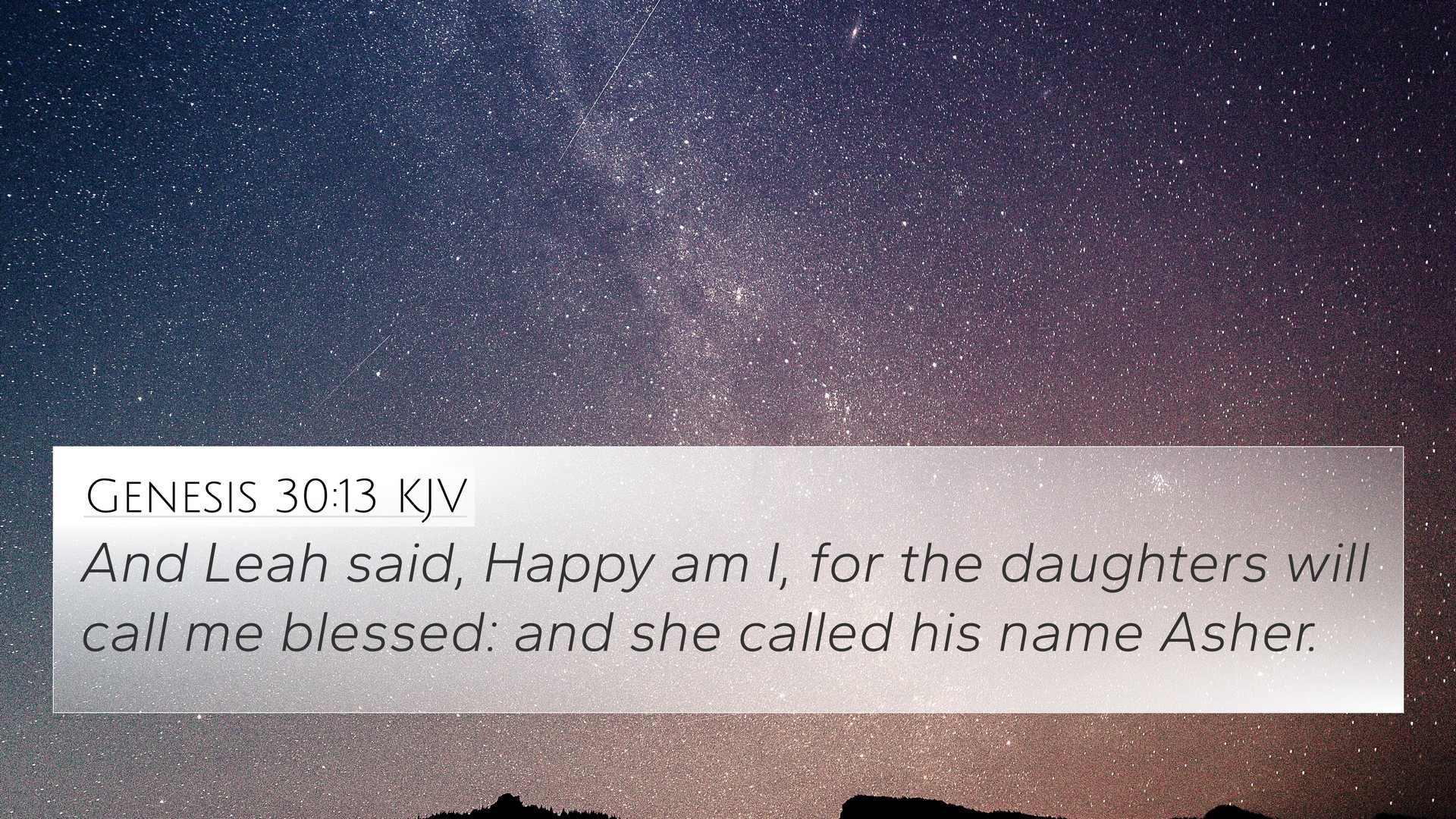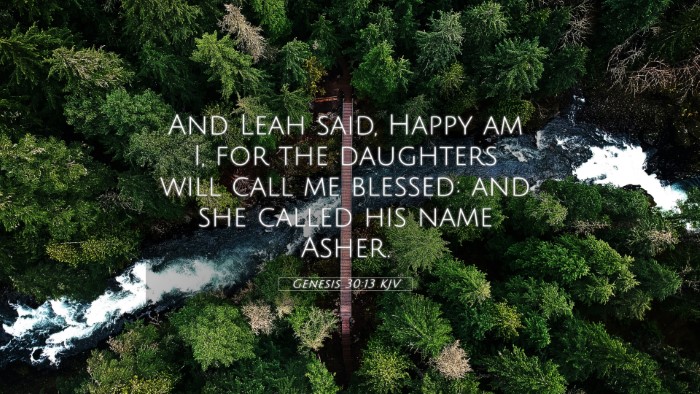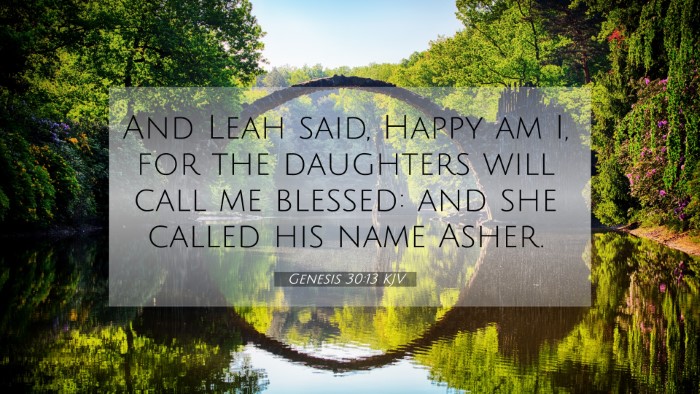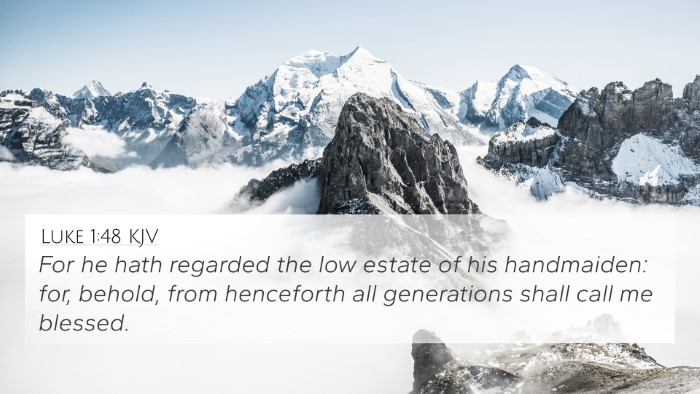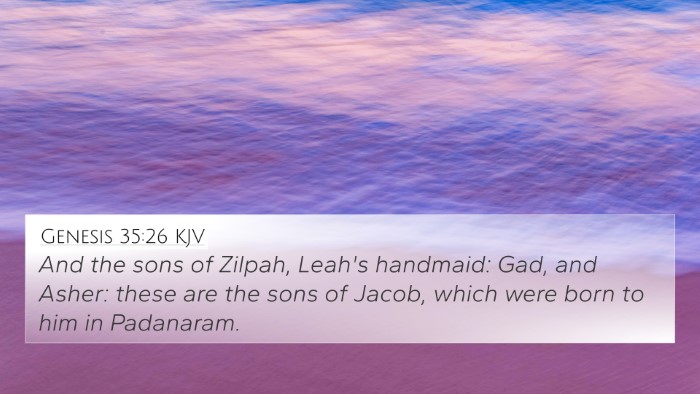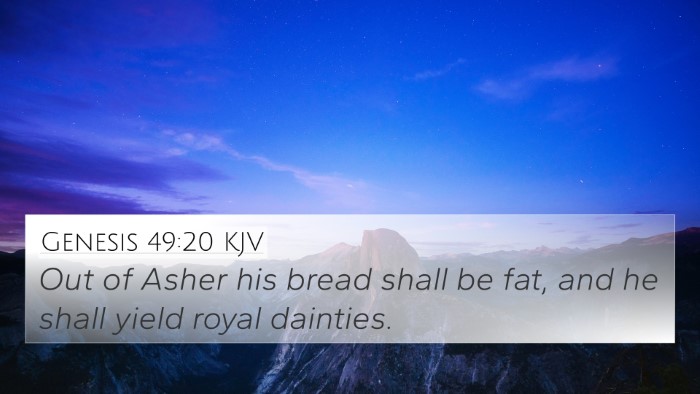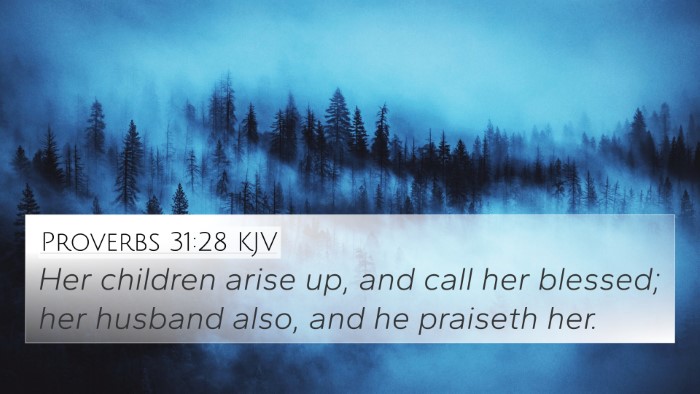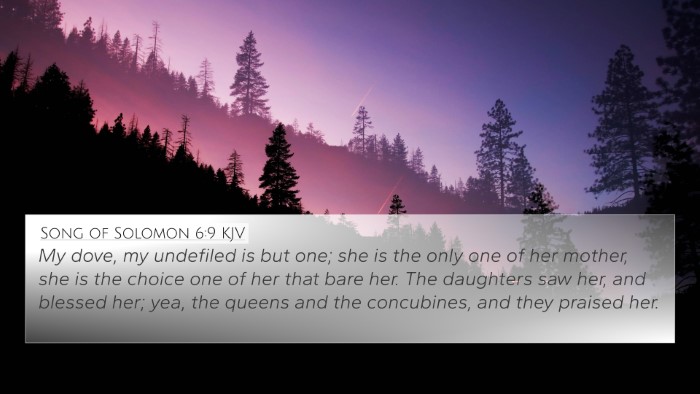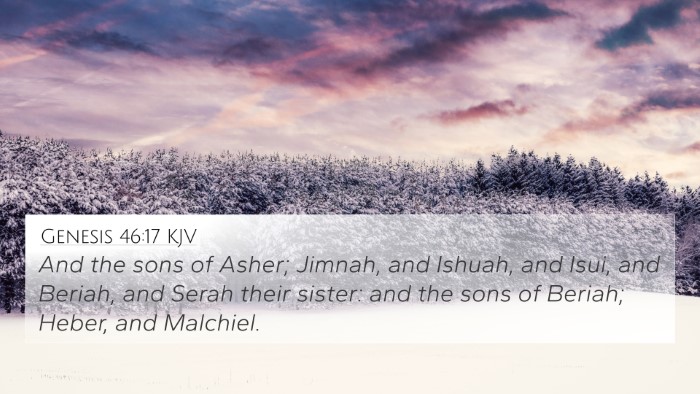Understanding Genesis 30:13
Bible Verse: Genesis 30:13 - "And Leah said, Happy am I, for the daughters will call me blessed: and she called his name Asher."
Overview
Genesis 30:13 provides insight into the life of Leah, the unloved wife of Jacob, and her struggle for recognition and affection. This verse captures a moment of joy for Leah as she expresses her happiness over the birth of her son Asher. Leah’s declaration highlights themes of blessedness and social recognition among women in her culture.
Thematic Significance
This verse communicates critical themes such as:
- Recognition: Leah seeks acknowledgment in a society where women's worth was often tied to their ability to bear children.
- Happiness in Childbirth: The joy expressed by Leah reflects the cultural significance of children and the blessings associated with them.
- Divine Favor: Leah’s statement can be seen as an acknowledgment of God’s favor in providing her with children, even amidst her struggles.
Commentary Insights
Matthew Henry: Henry emphasizes Leah's happiness as representative of her overcoming feelings of neglect and demonstrating her contentment with her blessings. His commentary underlines the emotional complexity Leah experiences—balancing between sorrow from Jacob’s lack of love and joy from God’s blessings.
Albert Barnes: Barnes notes that Leah’s statement about being called blessed refers to the joy and honor that motherhood brings within the context of her family and society. He draws attention to the name 'Asher,' which means 'happy,' reinforcing the link between divine gifts and human joy.
Adam Clarke: Clarke provides insight into the cultural implications of Leah's words. He explains that the naming of Asher is not just a personal expression, but also a societal proclamation of Leah’s perceived blessedness by her peers, reflecting her desire for social validation.
Bible Verse Cross-references
Genesis 30:13 connects with various other scripture passages that enhance its meaning:
- Genesis 29:32: Leah's first child Reuben, whose name means "see, a son," indicates her longing for Jacob's affection.
- Genesis 35:18: The naming of Benjamin and the significance of motherhood.
- Psalm 113:9: God's blessing upon the barren, illustrating His power to flip societal norms.
- 1 Samuel 1:20: Hannah's prayer for a son, showcasing the desire for recognition through childbirth.
- Proverbs 31:28: The virtuous woman's children rise up and call her blessed.
- Luke 1:48: Mary's declaration of being blessed among women, paralleling Leah's joy.
- Matthew 5:5: Blessed are the meek, highlighting a biblical view on happiness rooted in God's favor.
- Genesis 49:20: Jacob’s blessing on Asher, affirming his significance in Israel.
- John 16:21: Sorrow and joy in childbirth, similar to Leah’s experiences.
- Galatians 4:27: Connection with barrenness and fruitfulness, correlating Leah’s state with broader biblical themes.
Connecting Themes Across Scriptures
This verse serves as a key link in understanding the broader narrative within the Bible regarding:
- The societal role of women in biblical times, emphasizing motherhood as a source of value.
- The idea of blessedness as it relates to divine intervention in personal lives.
- God’s favor in transforming shame into joy through His provisions.
Cross-referencing Biblical Texts
For a deeper study, consider employing a Bible concordance or Bible cross-reference guide to find additional links between verses and themes. Tools for Bible cross-referencing can facilitate a cross-reference Bible study, enhancing the understanding of similar texts across the Bible.
Understanding Genesis 30:13 through comparative analysis opens doors to appreciate the intricate web of relationships and teachings within Scripture. With a focus on inter-Biblical dialogue, one can draw parallels that enrich the study of God's Word, making the connections between verses not only insightful but also transformative for spiritual growth.
